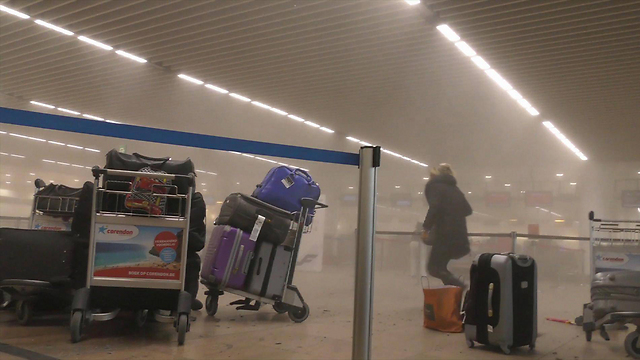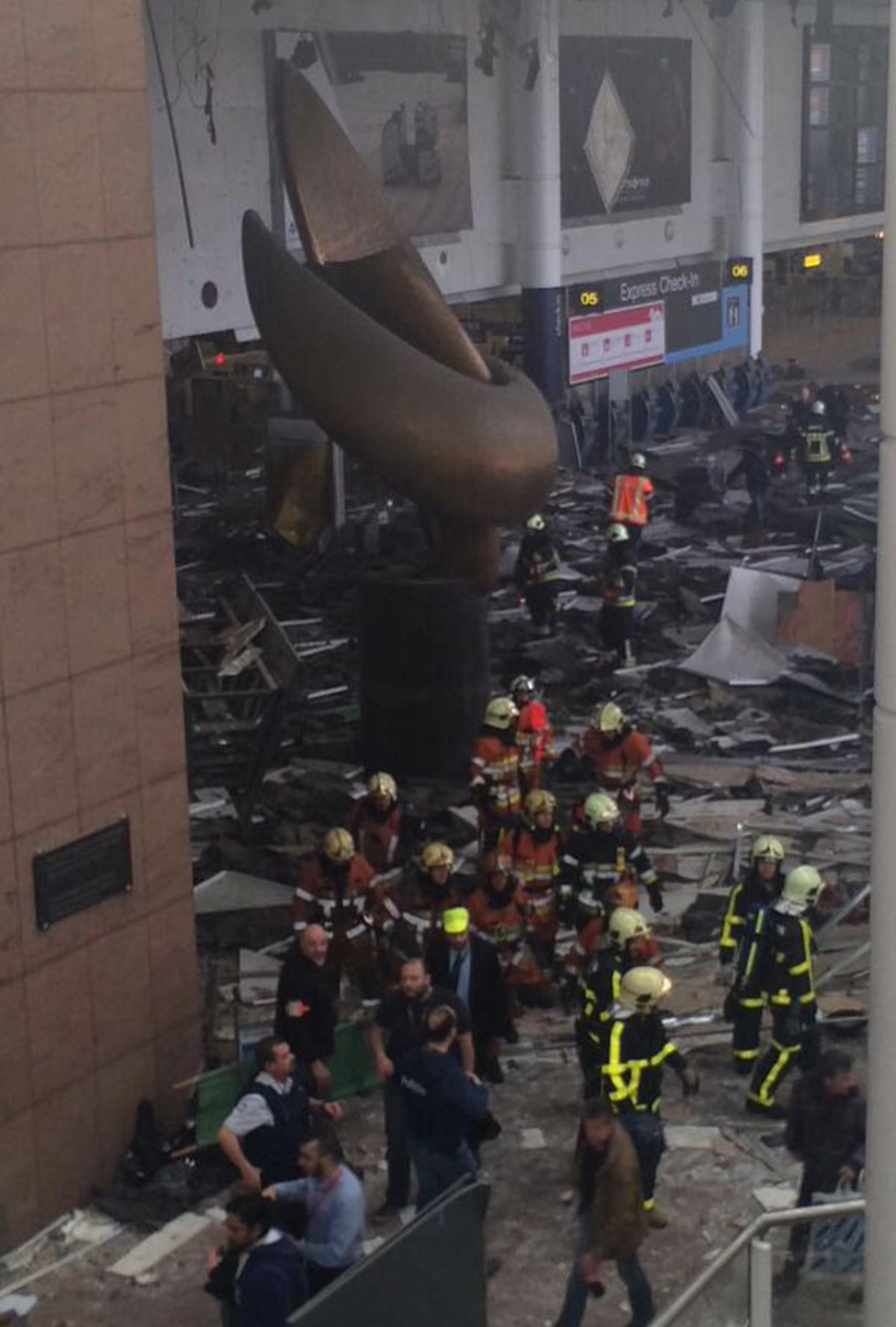Analysis: While difficult, several changes need to be made in the wake of the terrorist attacks in Brussels. Mental shifts will have to occur in the minds of Western, specifically European, leaders on the topics of aviation, intelligence, and the use of military power.
Three possible key lessons have arisen from the joint terror attacks in Belgium. All three of them require a fundamental change in investment, effort, agenda, and — most importantly — in the West’s worldview.
The first lesson is regarding the worldwide aviation system, which underwent a rare reform after the attacks of September 11: Rigorous security checks before boarding, the prohibition of sharp objects, and the supervision of routes of entry and exit to and from the aircrafts. This reform succeeded: Al-Qaeda made several attempts to blow up planes mid-flight, and they failed.
But this reform applied only to the planes themselves. It didn’t affect the airports or other means of mass transit (passenger ships, buses and trains). Brig. Gen. (res.) Dani Arditi, the head of the Israeli Counter-Terrorism Bureau at the time, warned preceding the 2004 attacks on Spanish trains that passenger trains would be the attackers’ next target and that Europe was unprepared.
Last August, a Moroccan jihadist planned to commit a massacre against passengers on a train from Paris to Amsterdam. Two marines managed to thwart the attack at the last minute.

At the end of October, an ISIS cell in the Sinai successfully blew upa Russian passenger flight midair.
On Tuesday, the attackers operated inside an airport and a subway station. This demands another revolution in public transit, and this time for all the different means of transportation, including the creation of a secured perimeter that includes all stations and ports. That change would entail, however, a great deal of effort, tremendous nuisance to passengers and a massive financial investment.
The second lesson is regarding intelligence. The enemy that European intelligence services are facing is young, talented, crosses borders, uses the local population and knows how to coordinate and organize timed operations in short periods of time, employing encrypted means of communication. Against such an enemy, the West must fundamentally change the perceptions of intelligence, coordination, manpower, resources and legislation, as well as make compromises on human rights.
Situated at the crux of the change is something that most Europeans would find to be in strike contradiction to their beliefs and ethics: It’s what the Shin Bet (the domestic Israeli security agency) calls “Basic Coverage.” It means monitoring widespread populations and geographical areas, all the time, at high resolution, even those who do not raise any specific suspicion. Simply put: tracking large Muslim populations in Europe, and not just those against whom particular information has been received. Basic Coverage is executed by employing human and technological resources in every street, in community centers and in mosques and with intelligence operatives’ local knowledge so complete, it’s as if they lived there.
This is how the Shin Bet operates vis-à-vis the Palestinian population. Without Basic Coverage, Israel would not have triumphed against the suicide-bomber intifada a decade ago.

The third lesson: Every additional terror attack on European soil brings closer the moment that the West will have to make a call, and do what it most dreads: ground operations against ISIS in Syria and Iraq.
The bitter experience of the post-US invasion of Afghanistan and Iraq is engraved deep in the DNA of Europe’s leaders and in the legacy of President Barack Obama. But this is only a partial lesson.
The invasion of Afghanistan, a country ruled by a terrorist organization, achieved its first goal. It scattered Al Qaeda’s commanders throughout the Middle East and Asia, made its operations much more difficult and helped the US undertake a series of assassination operations that seriously damaged the central core of the organization. In 2005, Bin Laden and Ayman al-Zawahri decided to cease most of their operations in the West and refocus on the Middle East.
Today, the central Jihadist organization, ISIS, again has a large territory under its control. There is a huge difference between an organization operating under these conditions, that not for nothing designates itself the Islamist State, and a scattered and fragmented organization whose leaders are constantly on the run.
The Istanbul suicide bomber this week is an excellent example: Mehmet Ozturk travelled between Turkey and Syria several times, came back to rest and equip himself every time that he felt that the manhunt after him was closing in, until he was ready to execute his final mission.
A ground operation does not necessarily mean a full occupation of Syria and Iraq, but it must include the elimination of principal ISIS bases and capturing or killing the senior commanders: al-Baghdadi and the former Iraqi generals who serve as his aides.
Moreover, pictures of the organization’s leaders killed or being tried at the International Criminal Court in The Hague would have a psychological value of their own.
As reported by Ynetnews
